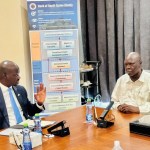(JUBA CITY) – South Sudan has reduced electricity tariffs in the capital Juba after President Salva Kiir ordered the Juba Electricity Distribution Company to lower prices for homes, businesses and government offices.
The new tariffs were announced following a review of the 100 megawatt power purchase agreement that supplies most of the city’s electricity. Households using less than 100 kilowatt hours per month will now pay 27.3 cents per kilowatt hour, down from 30.3 cents. Higher consumption above 100 kilowatt hours will cost 28.5 cents instead of 31.6 cents.
Connection fees and monthly service charges have also been lowered. At the current market exchange rate of 7,100 South Sudanese Pounds (SSP) per US Dollar, the adjusted household tariff of 27.3 cents is equal to about SSP 1,938. The previous rate of 30.3 cents was equal to SSP 2,151.
| Category | Previous Rate | New Rate | Previous Rate (SSP) | New Rate (SSP) |
|---|---|---|---|---|
| Household under 100 kWh | 30.3 cents | 27.3 cents | SSP 2,151 | SSP 1,938 |
| Household above 100 kWh | 31.6 cents | 28.5 cents | SSP 2,243 | SSP 2,023 |
Alongside the tariff cut, the president ordered a restructuring of the electricity company. The South Sudan Electricity Corporation will now own 60% of the distributor, while Ezra Construction, the current operator, will retain 40%.
The directive also called for renegotiation of power contracts and investment in solar and hydropower to reduce dependence on a single supplier.
Policy analysts said the cuts would help those already connected but warned that most residents still have no access to power. Juba has a population of nearly half a million people, yet fewer than 50,000 households currently receive electricity.
One analyst argued that reducing tariffs is only part of the solution, saying that corruption in the sector has limited expansion efforts. Civil society groups welcomed the move but questioned whether it would be implemented fully.
Activists said that electricity access is also a security issue, as darkness in residential areas has contributed to crime at night. They added that power is essential for economic activity, small businesses and education.
South Sudan remains one of the least electrified countries in the world. Estimates from the World Bank show that only around 7% of citizens have access to electricity, most of them in Juba. By comparison, Kenya covers more than 75% of its population.
Businesses in other parts of South Sudan continue to rely on diesel generators, which are costly and unstable. Investors in sectors such as agro processing, construction and hospitality have cited power access as a major barrier.
The tariff cut may attract interest from companies planning to set up factories or expand operations, but analysts say that reliable distribution will be more decisive than pricing alone.
For residents and traders in towns like Wau, Bor and Torit, the focus will now be on whether similar measures will be applied beyond the capital.


















































